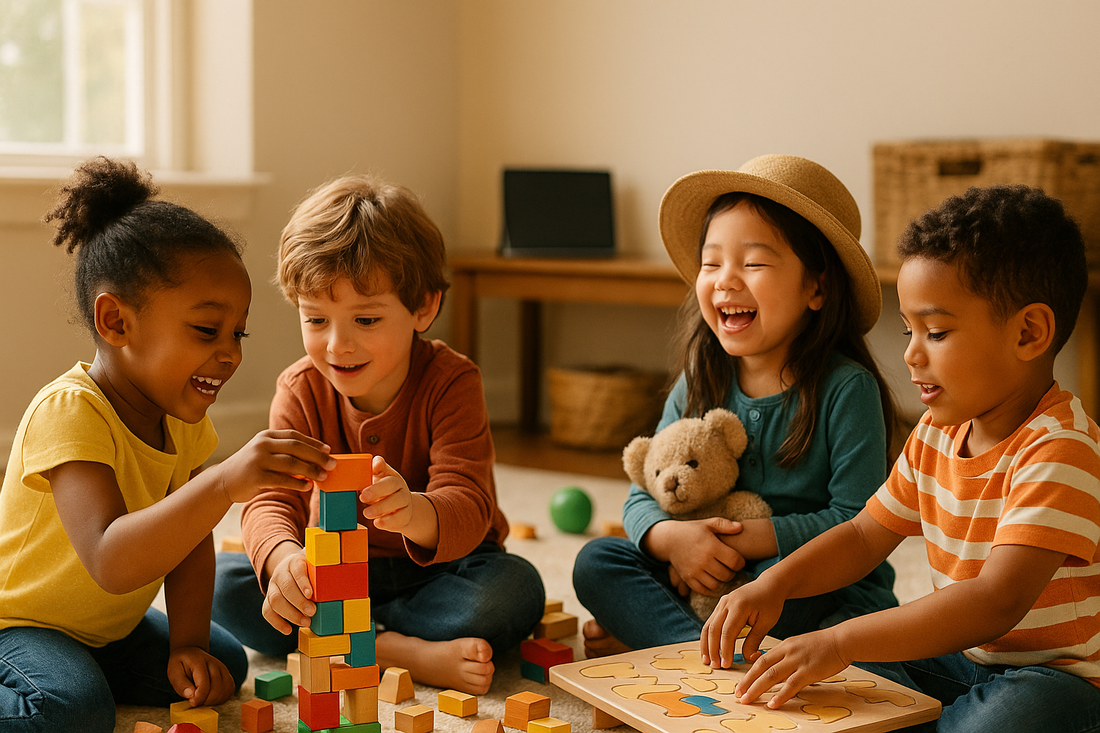
Screens and School Readiness: Striking the Balance (Ages 3–8)
Share
Between ages 3 and 8, children’s worlds expand rapidly. They learn to play with peers, start school, and develop early literacy and numeracy. But this is also when screen time often increases - whether through TV, tablets, or gaming. The challenge for parents isn’t removing screens completely, but finding balance.
1. Attention spans in the screen age
Fast-paced shows, games, and apps can train young brains to expect constant stimulation. Teachers across Australia and New Zealand often report difficulty holding children’s attention in the classroom, especially when they are used to quick rewards on devices.
- A Deakin University study found that 4-6 year olds with higher screen time showed more behavioural challenges and parent–child friction.
- Growing Up in NZ research links heavy early screen exposure with later issues in attention and social functioning.
Takeaway: Screens aren’t “bad,” but they shouldn’t replace play that requires focus, patience or creativity.
2. Social learning & emotional development
Play is how children learn empathy, cooperation and resilience. Screens can provide entertainment, but face-to-face play teaches emotional regulation and problem-solving.
- The Australian Institute of Family Studies reports that most preschoolers exceed the ≤1 hour/day guideline, often at the expense of active play.
- The Kids’Cam NZ study found children spend large amounts of out-of-school time on screens - displacing physical and social play.
Takeaway: Active, imaginative, and social play are still the best “teachers” for this age group.
3. Practical tips for ages 3-8
- Stick to limits: Aim for ≤1 hour/day of screen use, as per AU/NZ guidelines.
- Choose quality: Co-watch slow-paced, age-appropriate content.
- Balance it out: For every screen hour, aim for double the time in active play.
- Create screen-free zones: Meals and bedrooms should stay unplugged.
Conclusion
Screens can be part of life from ages 3–8 - but they shouldn’t dominate. By protecting play, sleep, and face-to-face connection, you set your child up for school success and healthy social development.
References & Further Reading
- Deakin University: Too much screen time puts young children at odds with parents
- Australian Institute of Family Studies: Too much time on screens
- Growing Up in New Zealand: Screen time and preschool development
- University of Otago: Kids’Cam study on after-school screen use
Give your child the gift of playful learning—without the screens.
